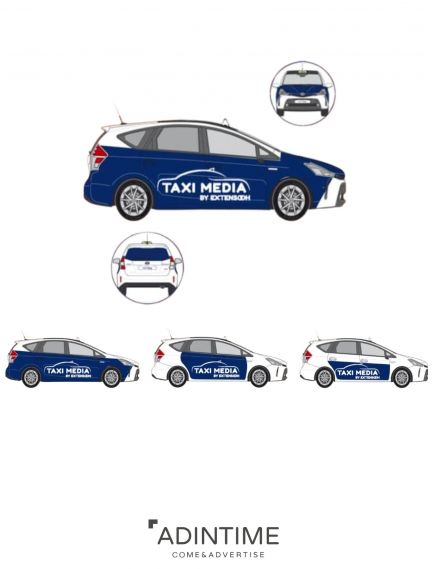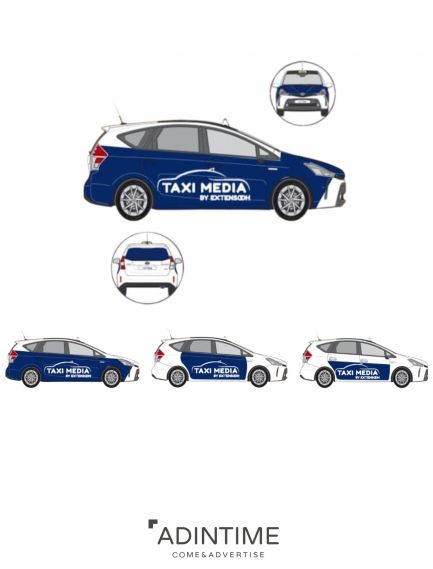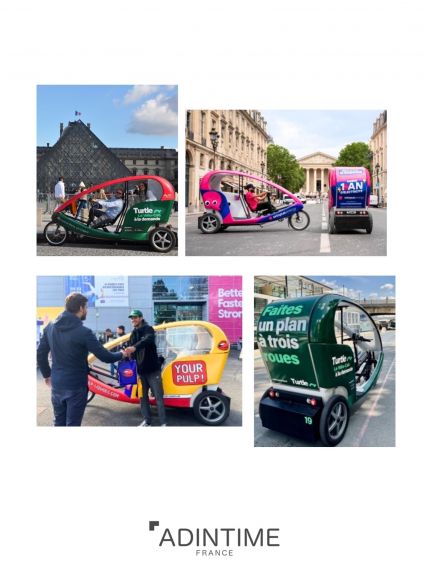Sustainable marketing has become a priority for businesses and advertisers, especially in a context where environmental and societal concerns are increasingly at the heart of consumer expectations. For advertising professionals, integrating sustainable practices into their marketing strategies is no longer just an option, but a necessity to address current challenges.
Definition of sustainable marketing
Sustainable marketing is based on several key principles that aim to minimize the negative impact of marketing activities on the environment and promote more ethical and responsible practices. These principles include:
- Transparency: Communicating honestly and transparently about practices and products offered.
- Eco-design: Integrating environmental considerations from the design of products and advertising campaigns.
- Long-term commitment: Fostering lasting relationships with consumers based on mutual trust and satisfaction.
- Social and environmental responsibility: Taking into account the social and environmental impacts of marketing activities as a whole.
Differences between sustainable marketing and traditional marketing
Sustainable marketing differs from traditional marketing in its holistic approach that aims to create value not only for the company but also for society and the environment. Unlike traditional marketing, which can focus solely on achieving short-term business objectives, sustainable marketing strives to reconcile economic performance, environmental preservation, and social well-being. This often involves rethinking strategies, messages, and communication channels to align with sustainability values and the expectations of eco-conscious consumers.
The challenges of sustainable marketing in the advertising industry
One of the main challenges of sustainable marketing in the advertising industry is reducing the ecological footprint of campaigns. This includes using more environmentally friendly advertising media, reducing waste generated by campaigns, and optimizing the resources used. For example, in the context of outdoor advertising (OOH, DOOH, MOOH), this means favoring recyclable or sustainable materials and adopting practices that minimize energy consumption.
Today's consumers are increasingly aware of environmental issues and expect brands to act responsibly. For advertisers, it is crucial to meet these expectations by integrating sustainability messages into their campaigns and actively engaging in initiatives that demonstrate their commitment to environmental protection. This involves authentic communication and concrete actions that strengthen consumer trust.
Compliance with environmental regulations and standards
The regulatory framework around sustainable marketing and advertising is continuously strengthening, with the adoption of new ecological laws and standards aimed at limiting the environmental impact of advertising activities. For advertisers, this means not only complying with these regulations but also anticipating future developments to remain compliant. For example, some legislation may impose limits on materials used or emissions generated by advertisements, pushing advertisers to innovate in their approaches to meet these requirements while achieving their business objectives.
Sustainable marketing strategies for advertisers
To integrate sustainable marketing into their strategies, advertisers must start by selecting advertising media that reduce environmental impact. This includes using less energy-intensive digital media, solar-powered billboards, or recycled materials for printed posters. Additionally, advertisers can favor media and platforms engaged in sustainable practices, thus reinforcing their eco-responsible image with the public.
Campaign optimization to reduce waste
Optimizing advertising campaigns is essential to minimize waste, whether it's material resources or energy. For example, by targeting audiences more precisely through the use of data, advertisers can reduce unnecessary distribution of their advertisements, thus limiting resource waste. Additionally, optimizing advertising formats to consume less energy, especially on digital platforms, also contributes to reducing the ecological footprint of campaigns.
Sustainability-focused messages and content
The content of advertising campaigns must reflect brands' commitment to sustainability. This involves not only promoting eco-responsible products or services but also conveying messages that encourage sustainable behaviors among consumers. Advertisers can create campaigns that raise public awareness of environmental issues while aligning their communication with sustainability values. This can also strengthen consumer engagement with the brand by creating a bond of trust based on shared values.
The future of sustainable marketing in advertising
The future of sustainable marketing in advertising looks promising, with the emergence of new trends and technologies that can radically transform the way campaigns are designed and distributed. Here are some key developments to watch:
- Eco-responsible programmatic advertising: Optimizing programmatic advertising considering the carbon footprint is a growing trend. Increasingly sophisticated algorithms allow for minimizing energy consumption by selecting more efficient servers and avoiding excessive distribution of advertisements. This approach helps reduce waste and improve campaign efficiency.
- Use of blockchain for transparency: Blockchain is beginning to play a role in sustainable marketing by offering complete traceability of advertising campaigns. This technology allows advertisers to guarantee that their advertisements meet strict environmental and ethical standards while offering consumers total transparency on the origin and impacts of promoted products or services.
- Augmented reality (AR) and virtual reality (VR) for immersive campaigns: AR and VR allow for creating immersive advertising experiences that consume fewer physical resources. For example, consumers can explore products or services interactively without requiring printed materials or travel, thus reducing the ecological footprint of campaigns while offering an innovative and engaging experience.
- Adoption of alternative and sustainable advertising media: New sustainable advertising media, such as reusable packaging or biodegradable products, are beginning to develop. These innovative media allow brands to communicate in an eco-responsible manner while limiting waste generated by advertising campaigns.
- Data analysis and artificial intelligence for sustainable optimization: AI and advanced data analysis allow for optimizing advertising campaigns to maximize their impact while minimizing their ecological footprint. For example, AI can help identify the most effective times and channels to distribute advertisements, thus reducing the need for unnecessary repetitions and excessive distribution.
In summary, the future of sustainable marketing in advertising relies on the adoption of innovative technologies and strategies focused on reducing environmental impact. Companies that can anticipate and integrate these emerging trends will not only be able to meet growing consumer expectations for sustainability but also stand out in an increasingly competitive market. These developments represent a real opportunity to rethink advertising in a more responsible, effective, and environmentally friendly way.
Towards more responsible and effective advertising
Sustainable marketing is no longer just a trend, but an essential necessity for advertisers who wish to adapt to growing consumer expectations and regulatory requirements. By adopting eco-responsible advertising practices, optimizing their campaigns to reduce waste, and integrating sustainability messages into their content, advertisers can not only reduce their environmental impact but also strengthen their brand image.
The transition to more responsible advertising requires a long-term commitment and strategic thinking. Companies that succeed in integrating these principles authentically and effectively will position themselves favorably in an increasingly sustainability-oriented market. For advertisers, this represents a unique opportunity to reinvent their practices, meet the expectations of modern consumers, and contribute to a future that is more respectful of the environment and resources.




 Top 30 best ads musics
Top 30 best ads musics
 The influence of advertising on purchasing behavior
The influence of advertising on purchasing behavior
 Top of the most listened podcasts in France
Top of the most listened podcasts in France
 Top 30 best ads 2021 in France
Top 30 best ads 2021 in France
 This Year Marketing Calendar
This Year Marketing Calendar
 OOH Advertising: My honest review
OOH Advertising: My honest review
 Facebook Ads Library: The ultimate guide to winning campaigns
Facebook Ads Library: The ultimate guide to winning campaigns
 How to prepare your advertising campaigns for Christmas?
How to prepare your advertising campaigns for Christmas?
 The top 20 ad films of the year
The top 20 ad films of the year
 Example of a unique selling proposition
Example of a unique selling proposition











